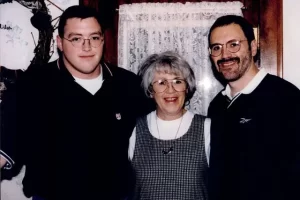
Women’s health is a multifaceted topic, with various aspects deserving attention. Among these, bone health is crucial, especially as women age. Understanding the significance of maintaining strong and healthy bones is essential, as it can impact a woman’s quality of life later. In this comprehensive guide, we delve into the importance of bone health for women, covering everything from the basics to practical tips for maintaining strong bones throughout life.
The Basics of Bone Health
Skeletal Foundation
Student Query: Why are bones so important for overall health?
Bones are not just the body’s structural framework; they serve several vital functions. They provide support, protect vital organs, store essential minerals, and allow movement. In other words, bones are the foundation of our bodies, and their health is critical for our overall well-being.
Bone Composition
Bones are not static; they are constantly changing. They comprise several components, including minerals (mainly calcium and phosphorus), collagen (a protein that provides flexibility), and bone cells. This dynamic structure undergoes a process called remodelling throughout our lives, with old bone tissue being replaced by new.
Women and Bone Health
Unique Challenges for Women
Women face distinct challenges when it comes to bone health:
1. Hormonal Changes
Hormonal fluctuations during menstrual cycles, pregnancy, and menopause can affect bone density.
2. Osteoporosis Risk
Women are more susceptible to osteoporosis, a condition characterized by weak and brittle bones.
Osteoporosis: The Silent Threat
Understanding Osteoporosis
Student Query: What is osteoporosis, and how does it affect bone health?
Osteoporosis is a bone disease that weakens the bones and makes them more prone to fractures. In this condition, bone density and quality are significantly reduced, leading to brittle and fragile bones. Osteoporosis is often referred to as a “silent threat” because it progresses without symptoms until a fracture occurs.
Osteoporosis Risk Factors
Several factors increase the risk of osteoporosis:
1. Age
The risk of osteoporosis increases with age, especially after menopause.
2. Family History
A family history of osteoporosis can raise an individual’s risk.
3. Hormone Levels
Low estrogen levels in women during menopause can contribute to bone loss.
Prevention and Maintenance
Building Strong Bones
Student Query: What can women do to prevent osteoporosis and maintain strong bones?
Preventing osteoporosis and maintaining bones wellness is possible with the right lifestyle choices and healthcare measures:
1. Calcium-Rich Diet
Ensure an adequate intake of calcium through dairy products, fortified foods, and leafy greens.
2. Vitamin D
Vitamin D is essential for calcium absorption. Spend time in the sun, and consider supplements if necessary.
3. Weight-Bearing Exercises
Engage in weight-bearing exercises like walking, jogging, and resistance training to stimulate bone growth.
Regular Checkups
1. Bone Density Testing
Women over 65 or those with risk factors should consider bone density testing to assess their bone health.
2. Medication
In some cases, doctors may prescribe medication to slow bone loss or increase bone density.
The Role of Hormone Replacement Therapy
HRT for Bone Health
Student Query: How does hormone replacement therapy (HRT) affect bone health in women?
HRT involves taking medications that contain female hormones to replace those the body loses during menopause. Estrogen, one of the main hormones in HRT, plays a significant role in bone health. It helps maintain bone density and reduce the risk of fractures, making HRT an effective approach to osteoporosis prevention.
Consultation with Healthcare Providers
HRT is not suitable for every woman, and it comes with potential risks and benefits. Decisions regarding HRT should be made after consulting with a healthcare provider who can assess individual needs and consider other factors such as cardiovascular health.
Lifestyle Factors and Bone Health
The Role of Nutrition
Nutrition plays a central role in maintaining bone health:
1. Avoid Excessive Salt and Caffeine
High salt and caffeine intake can lead to calcium loss.
2. Limit Alcohol Consumption
Excessive alcohol consumption can hinder the body’s ability to absorb calcium.
The Importance of Regular Exercise
Exercise is a key element in preventing osteoporosis:
1. Weight-Bearing Activities
Activities like dancing, hiking, and stair climbing are excellent for bone health.
2. Strength Training
Resistance training helps build muscle, which, in turn, supports bone health.
Avoiding Smoking
Student Query: How does smoking impact bone health?
Smoking is detrimental to bone healthiness. It interferes with calcium absorption and hormone production, which can result in decreased bone density. Quitting smoking is essential for maintaining strong bones.
Bone Health Across the Lifespan
Childhood and Adolescence
Student Query: Is bone health only relevant to older women?
No, bone soundness is important at every stage of life. Building strong bones during childhood and adolescence prevents problems later in life.
1. Calcium-Rich Diet
Encourage children and adolescents to consume calcium-rich foods and get regular exercise.
2. Weight-Bearing Activities
Encourage physical activities that promote bone strength, such as running and jumping.
Pregnancy and Lactation
Pregnancy and lactation also place demands on a woman’s bone health:
1. Nutrient Intake
Ensure adequate calcium intake to support both the mother and the developing baby.
2. Post-Pregnancy Care
After childbirth, continue to focus on nutrition and exercise for bone health.
Conclusion
Bone soundness is an integral part of women’s overall well-being. Women face unique challenges related to bone fitness, including hormonal changes and a higher risk of osteoporosis. Understanding the basics of bone fitness, the impact of osteoporosis, and how to prevent it through lifestyle choices and, in some cases, hormone replacement therapy is essential.
While bone healthiness is often associated with older women, it’s a lifelong concern. Building strong bones from childhood through adulthood and into the senior years is a journey that can help women maintain their independence, mobility, and quality of life. Women can enjoy a more robust and vibrant future by prioritizing bone health and taking proactive steps to protect it.







